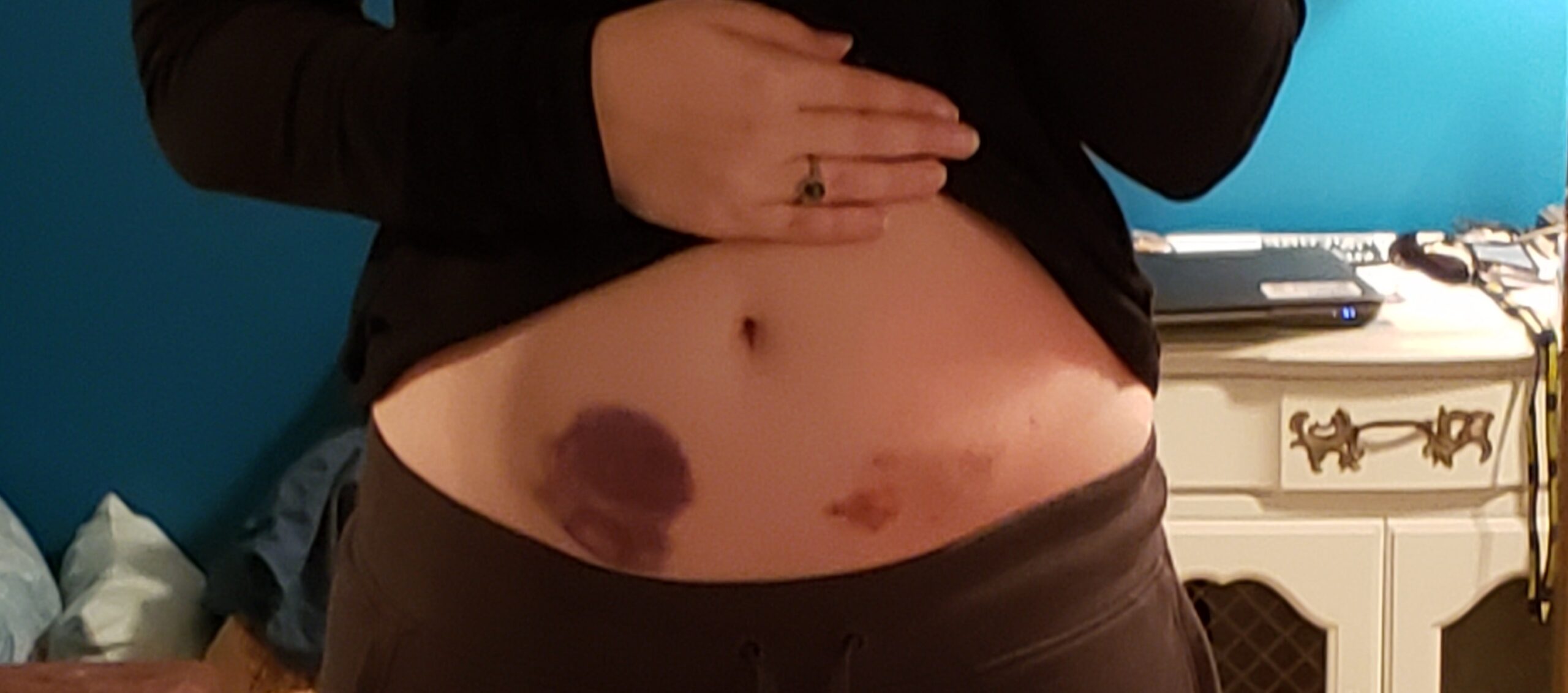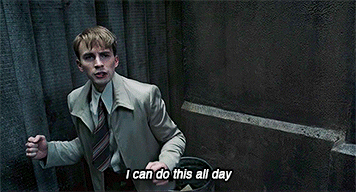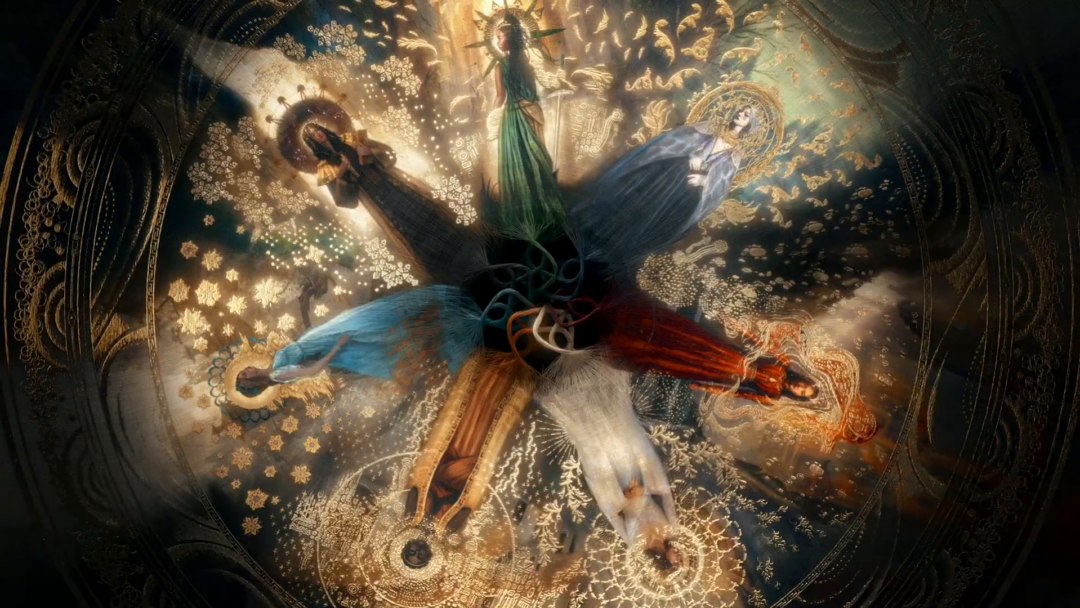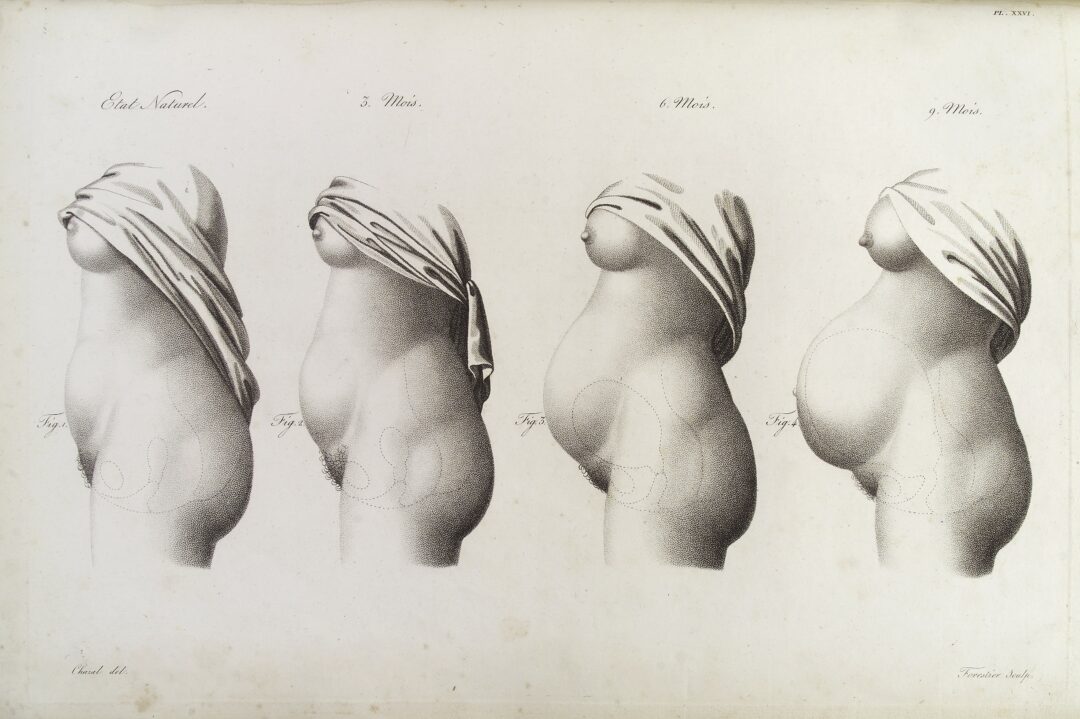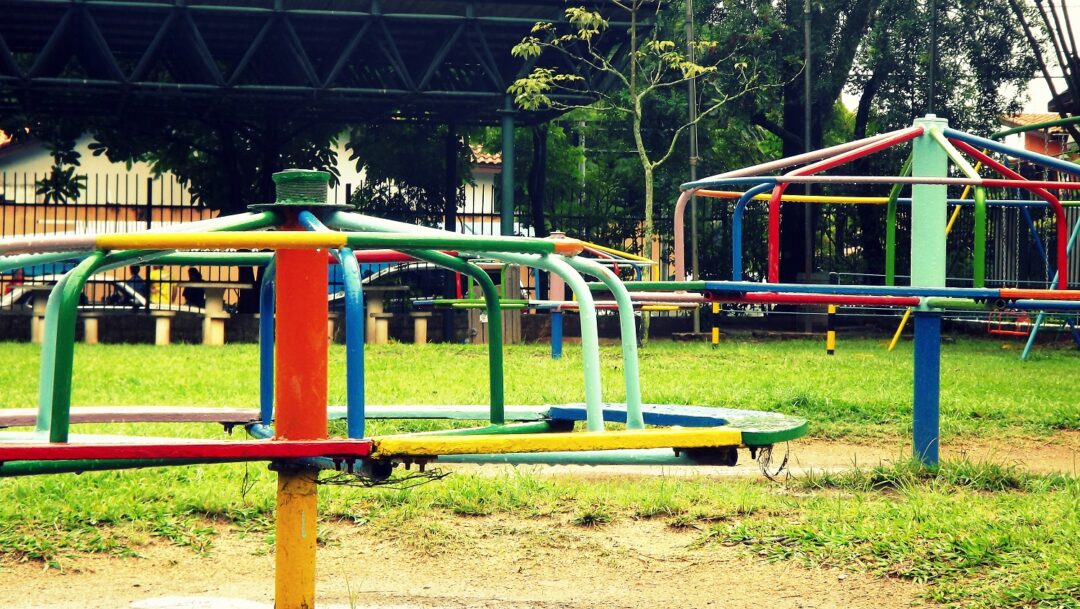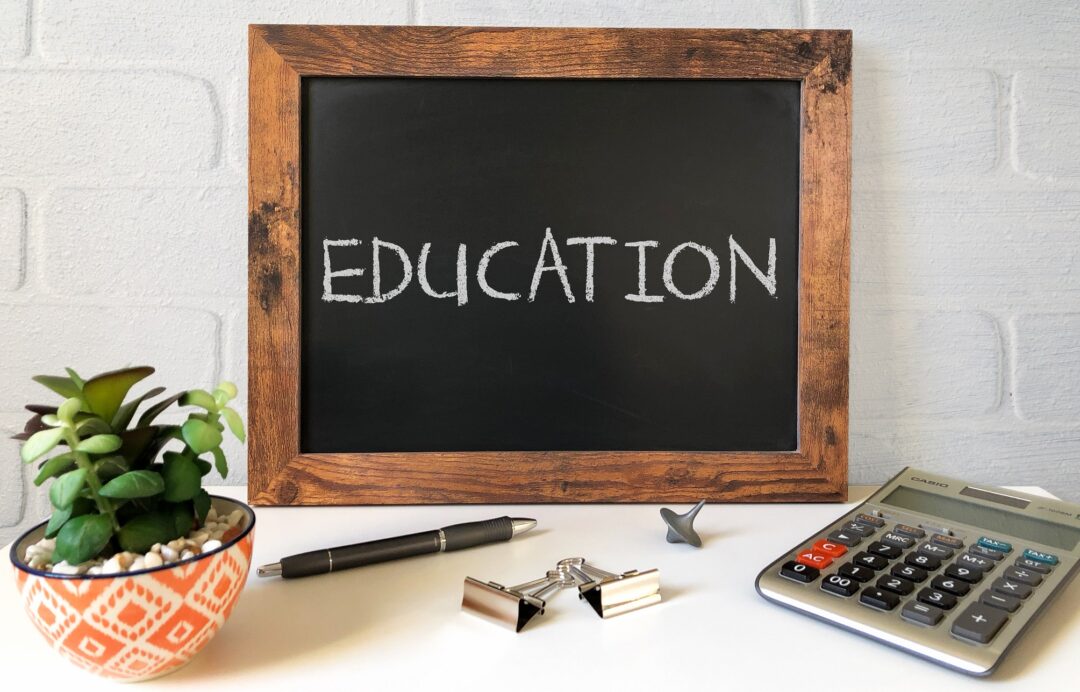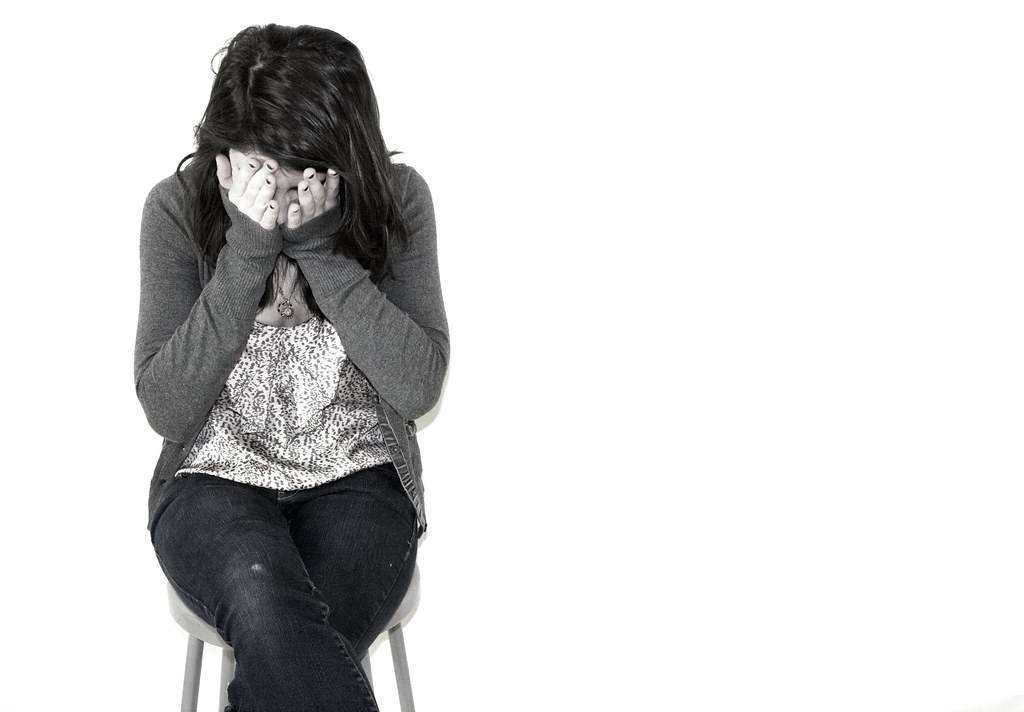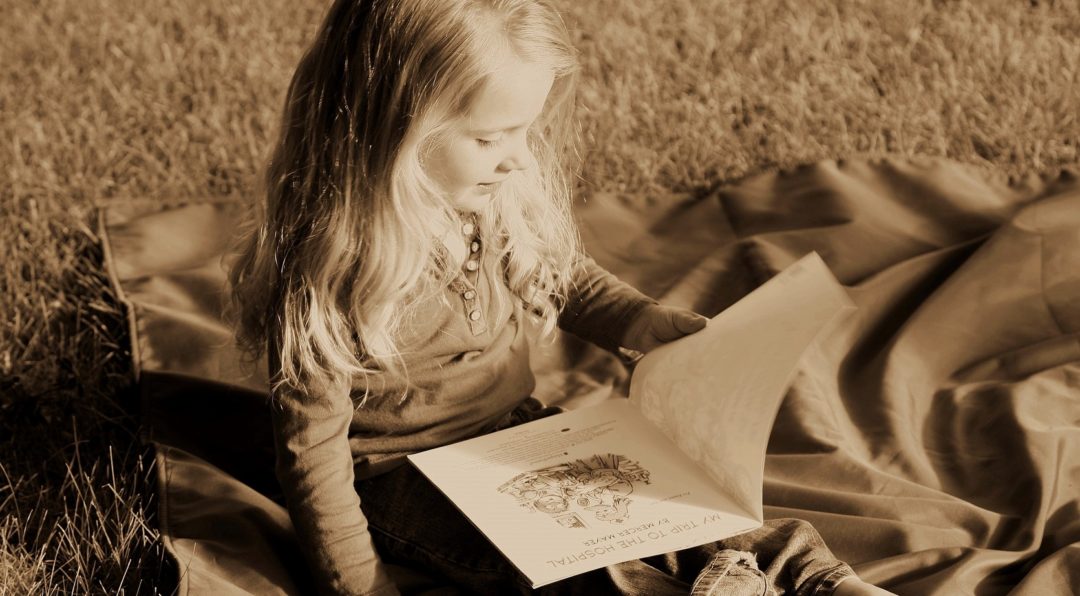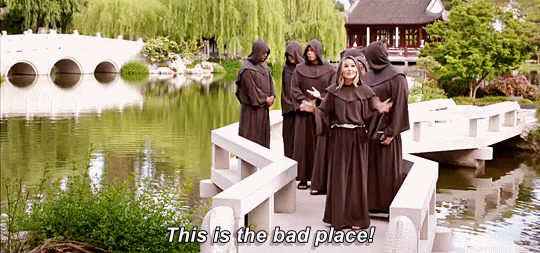When my child was a few months old, my partner and I skyped with an old friend to catch up. Of course we talked a little bit about pregnancy and recovery, and I mentioned how my pregnancy was absolutely worth it and I would do it again.
“Oh, so not that bad, then?” She said, naïvely.
I laughed. Hard. “No, no– it was definitely the worst, most painful, awful thing I’ve ever done. It was just also worth it for me.”
***
At first I thought I was pretty well-informed on what to expect. I knew about “the first poop,” I had a realistic idea about recovery time, I knew pregnancy can cause all sorts of changes like developing new allergies or going deaf. My aunt is blind in one eye, my mother had a prolapsed uterus, a massage therapist had hyperemesis gravidarum. I felt that I was braced well enough for what pregnancy could throw at me.
[Narrator: she was not.]
***
After childbirth, an unexpected thing happened. I got even more political, and I didn’t think that was possible. Also, my priorities shifted around a little bit. I am now vehemently emphatic about paid parental leave, am furious about the “meh” approach governments are currently taking to climate change, and I became incredibly more committed to being pro-choice.
I love being a mother. I love my child. I can’t imagine my life without them now. But pregnancy … no one should ever have to go through that torture unless they want to. If I want to torture myself? Fine, I’m a masochist, whatever. My babies are worth my suffering. But if the government is torturing me?
So, just to illuminate exactly what my pregnancy was like– both for those who think forcing people to be pregnant when they don’t want to be is a walk in the park, as well as for people who are curious what might happen to them if they do want to be– here’s my experience as completely as I can tell it.
***
I knew to expect nausea, especially during the first trimester. I knew that “morning sickness” is a misnomer. What I didn’t expect was to be sick all of the time. I usually only vomited in the evenings, but I was still miserable every other hour of the day. I couldn’t eat anything except rice and bamboo ramen with peas and mushrooms, and even that was a struggle. I would just lay on our couch in the fetal position, groaning, while my partner tried to watch TV.
What I did not even remotely expect was exhaustion to hit me like a freight train. I have a consistent sleep schedule– 2am to 10am. I’ve been like that for years. I’ve tried to forcibly adjust it, no dice. 2am to 10am is when I sleep. Well, before the first trimester. Then I would fall asleep whenever my body decided it was ready to sleep. Reading a book, watching a movie, playing a video game — while actively cleaning my house. I thought “oh I’ll just do this task while sitting” and I woke up two hours later in a pile of laundry with a half-folded shirt in my hands. Every single day I thought of all the first-trimester pregnant women who had jobs that took them out of the house. How. I still do not know. How is that possible.
And that’s not even the worst part. I have a MTHFR mutation that puts me at increased risk for miscarriage. Because accessing OB/GYN care is practically impossible in my area, my GP helped me while I waited for my first appointment. She recommended I take Lovenox, and gave me the various studies showing how Lovenox plus methylated folate and aspirin helped reduce miscarriage in people with my mutation.
Y’all.
That is the bruising from maybe three or four injections. They were daily injections. We ended up having to inject all over my belly, hips, sides, and butt trying to give the bruises time to heal before using the same injection site again. And did it hurt. Every injection burned like fire for long after the shot was over. We followed all the pain-management tips we could find and it still hurt like a motherfucker. I wept with gratitude when the OB specialist saw my bloodwork and said she didn’t think it was necessary to continue the Lovenox. I’d done 84 injections at that point.
And that was just the first trimester.
The second trimester came with all the typical stuff you hear about — having to get up multiple times in the middle of the night to pee, etc — but mine also came with a migraine that did not let up for even a single moment until I gave birth. We tried every medication and modality possible that was safe for pregnant people to treat migraine, and nothing made a dent. It was excruciating, and there wasn’t anything we could do if I wanted to stay pregnant. For months all I could do was lay in the dark and cry. Eventually we found the Allay Lamp and at least at that point I was able to read again without pain, because on top of the pain was the boredom. Most of my fun activities use screens, and the backlights were like icepicks straight through my eyesockets.
The latter half of the second trimester and the third trimester are honestly a blur, because that’s when things got truly terrible. Oh the Migraine From Hell wasn’t enough? How about we throw in Restless Leg Syndrome From the Abyss, The Total-Body Itching from Beyond the Inferno, or Ballooning Weight from My Worst Nightmares? OOOOOoooo what if we did all three?
Goddess. Restless Leg Syndrome. I had experienced it occasionally before– it can be a part of my fibromyalgia– but it was usually manageable. During pregnancy though, it was inescapable. Constant. If you’ve never experienced it, thank your lucky stars because it is indescribably awful.
And then the itching my GOD the itching. My sister-in-law stayed with us for a bit in 2021, and she had a run-in with poison ivy. I helped her treat it and wrap it, and each time I saw the sores all I could think was that is what my entire body felt like. It felt like poison ivy blisters covered every single inch of my skin. Laying in bed trying to go to sleep was wretched. Between my legs and the itching, I was barely getting 2 or 3 hours of sleep a night, and I was so unbelievably tired. Prescription sleep aids barely helped. I had to sit in a blazing hot shower and slap myself for roughly thirty minutes before going to bed just on the off-chance I might be able to sleep for an hour or two if the ambien also worked. Just thinking about this is making my scalp light on fire.
Oh and I also had horrific heartburn. Because why not. And I couldn’t do the usual method of determining if I’d developed gestational diabetes, so I had to do finger prick tests for like a month because something was just slightly off in my results. They never explained why I was gaining so much weight, either, even though I’d only increased my caloric intake by the recommended amount. I went from 153 to 210, and no one had an answer as to why that was happening. Turns out, it was the most massive placenta anyone in the hospital had ever seen in their life, and two weeks after delivery I was 160.
Which leads to the grand finale: childbirth.
I was in active labor (not early, active) for thirty hours. I have no idea how long early labor was, because I had no idea I was in labor until my partner suggested we time the distance between the “intense” moments. I’d been in active labor for two or three hours before we figured it out. I’d been asking my midwives and other folks “how will I know I’m in labor?” and the answer had always been “oh you’ll know.” Turns out, no, it’s entirely possible to not know. When we timed the “crests” and they were 4 minutes apart, I was like “no way this is labor, this is barely worse than a period” (I am never underestimating my period pain again, btw) so I called the midwife to ask what she thought. Halfway through a sentence I had to stop and groan and the midwife laughed and confirmed yup that’s labor.
By the time we finished the hour and a half drive to the hospital— yes, the closest hospital to me that could manage a high-risk pregnancy was that far away– I was at 7cm and back labor had started.
I cannot describe the particular horror that is back labor. It’s more common in first pregnancies, especially with “sunny side up” babies like mine was. I’d decided for what seemed like sensible reasons at 36 weeks to try delivery without an epidural, so I went for another six hours just for the midwife to say I’d only manage to dilate a single centimeter. Those six hours were the most cursed, miserable, blindingly excruciating thing I’ve ever experienced– yes, including kidney stones and a hemorrhagic cyst rupturing in my abdomen. And the worst part was I had to do them all on my knees, because no other position was even remotely a relief, and I hate being on my hands and knees.
And the fetal monitoring bands. I have no idea why, but having them on was the fucking worst. I was going through quite a bit as you can imagine and those monitoring bands– even though they were on infrequently, and for short periods– were my absolute nemesis. Finally, hours and hours after we’d made it to the hospital my midwife recommended an epidural so I could sleep. Given the baby’s position and the lack of progress, she didn’t think I was having a baby anytime soon. She was right, it took another 14 hours.
Imagine with me for a moment that someone is taking a chainsaw to your back while shoving a white-hot poker up your ass. Now, imagine while this is happening to you, that you have to sit perched on the edge of a bed with your back arched like a screaming cat. There with me? Now, stay that way and be perfectly motionless and silent for fifteen minutes. Not thirty seconds, or a minute. For a quarter of an hour, while a serial killer is trying to saw you in half. That, theydies and gentlethems, is what it’s like to get an epidural placed during back labor.
The epidural in, I was able to sleep. Developed preeclampsia, so that was a fun little emotional roller coaster ride. Eventually, though, I’d dilated enough it was time to push.
And heavens to betsy did I push. For four straight hours. Every single contraction I gave it everything I had, for hours. At one point they were talking about the potential for a cesarean and I looked at my partner and said the following:
I know. I’m hilarious.
After more than three hours of pushing, though, the OB on duty came in and explained the baby was coming down diagonally and was still too far up the birth canal to get with a vacuum, so we could go straight to doing a C-section or try with forceps first. I have stairs in my house, so I said let’s try the forceps first.
I was pretty out of it at this point, but my partner said it was like watching the dining table scene from Alien. The baby went from all the way behind my pelvic bone to completely born in a single contraction. Blood sprayed all the way up to my face, and the sound that left my body was unworldly. I sobbed the entire hour she was sewing me up, and I had a third degree tear. For the uninitiated, that means I was ripped open from stem to stern, pretty much.
But I had my baby, and they were perfect. Thanks to spending zero time in my vagina, they were totally unsquished and looked like a model Gerber baby from the first moment. After an hour in the NICU, all 10 pounds of them were in my arms and I have only been happier … pretty much every single time they smile at me.
***
Oh you thought this tale of horror was over, did you?
Nope.
***
Anytime someone mentions “the first poop” now I get angry. It is not “the first poop.” It is the first half dozen poops you liars. I struggled with pooping for weeks and weeks, and bowel movements are still– almost two full years later– not comfortable. Oh, did you know that hemorrhoids are common with pregnancy and labor and permanent. No one fucking told me how once you’ve got one that sucker is on your asshole for eternity. Granted it doesn’t bleed every single time I poop– bleeding is rare now, true — but it’s there. I shit my pants a couple of times, thanks to the combination of laxatives and stimulants I needed in order not to become impacted. Surprise! You want to change your baby’s diaper? Nope! You’re going to be lurching down the hallway holding a half-changed infant screaming for your husband to come upstairs so you can shit into the toilet instead of your underwear.
That’s never shown up in any of the movies. Huh. Wonder why.
I also needed pelvic floor therapy for months, because of the whole baby-exploding-out-my-vagina thing. I couldn’t sit regularly. I had to perch and sit ramrod straight if I could sit at all, but I was usually lying down or standing. Do you know what pelvic floor therapy is? The therapist sticks their fingers up your vajayjay for half an hour and talks about the weather. It is weird. And uncomfortable. And also the only way I’d ever sit up again.
I had to throw out most of my shoes because they no longer fit. Turns out a bunch of pregnancy factors can affect your shoe size. Diastasis recti is no joke, which I had thanks to my ten-pounder baby. All the cramping as your uterus tries to shrink back down to something approaching its pre-pregnancy volume is something else, too, especially when you’re constipated.
I did nothing but sleep and breastfeed for the first six weeks. I could barely even eat, and mostly just choked down protein bars the first week. Once again, people who have babies and then just jump back to work six weeks later how. HOW. Not having at least six months paid parental leave is a CRIME. Every single session Congress doesn’t pass paid parental leave they are committing a CRIME against anyone who’s given birth.
***
I have a healthy, happy toddler. I’m relatively fine, now, although I am still not used to not being able to control my farts and I’m not a huge fan of having to cross my legs every time I sneeze. Everything around the middle is just a whole lot more jiggly now, but I’m getting used to it. I can look in the mirror and see how my body made a baby. Somehow, me and my body got through it.
Because I wanted to go through all that.
I chose it.



